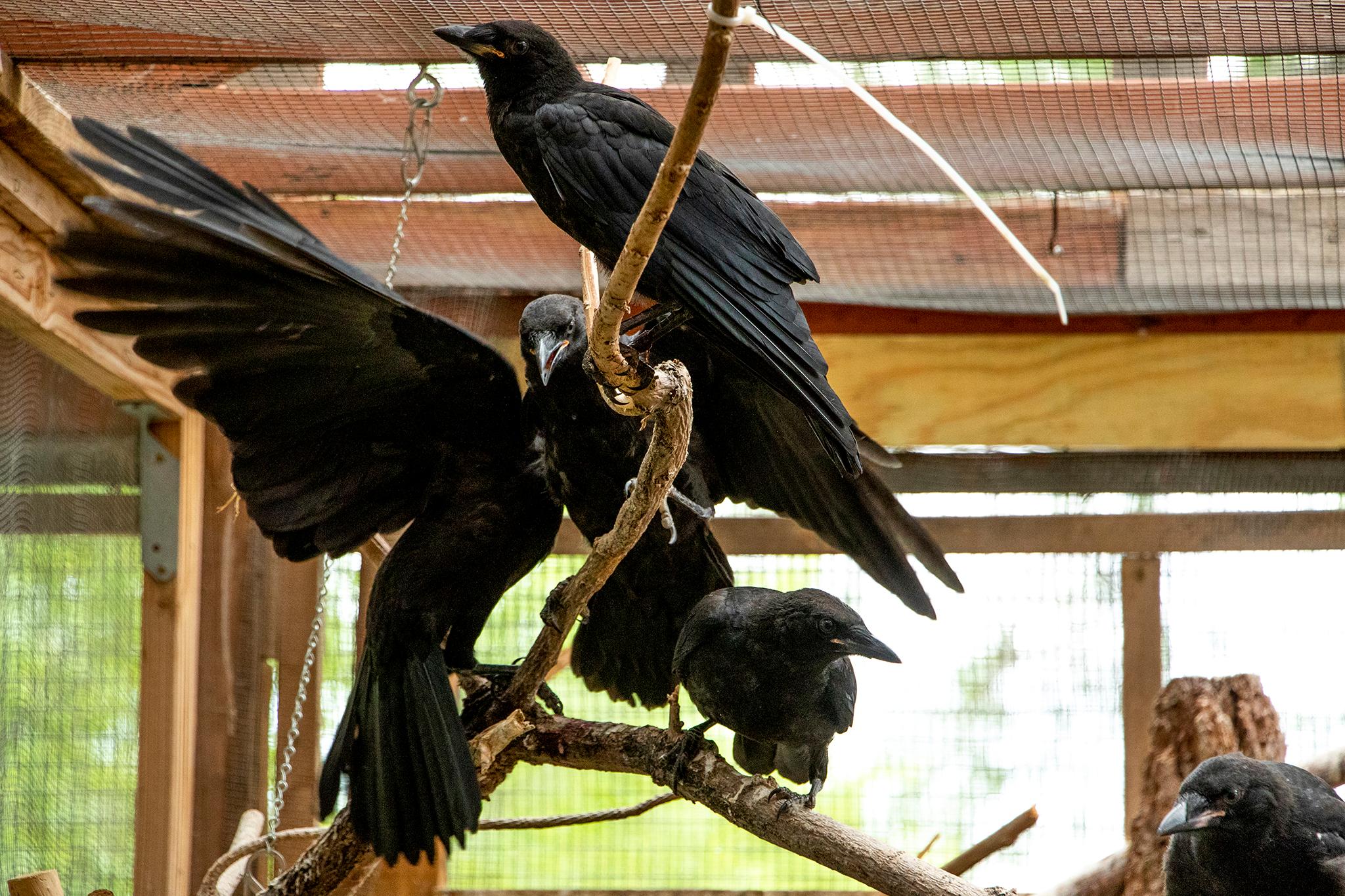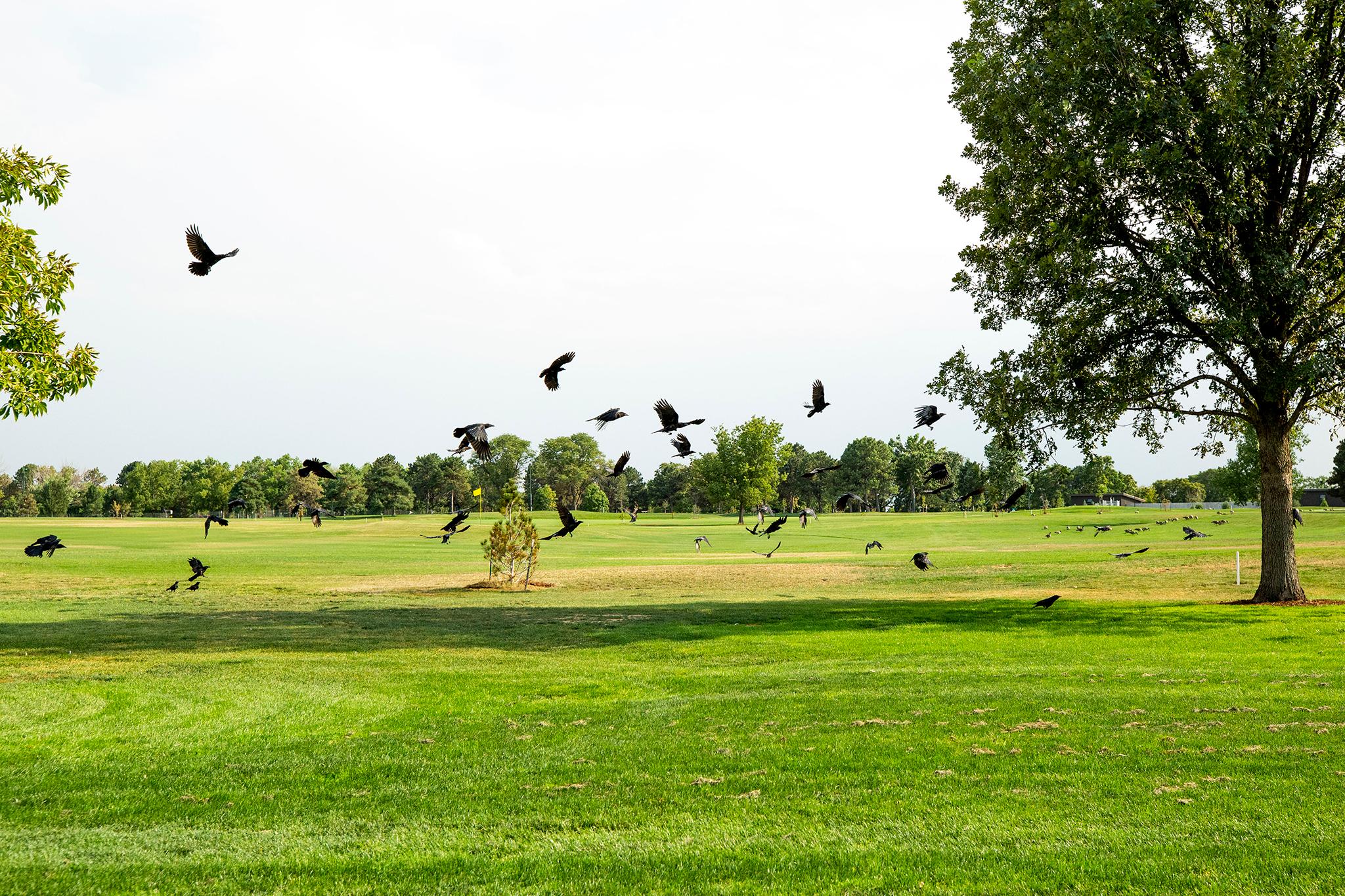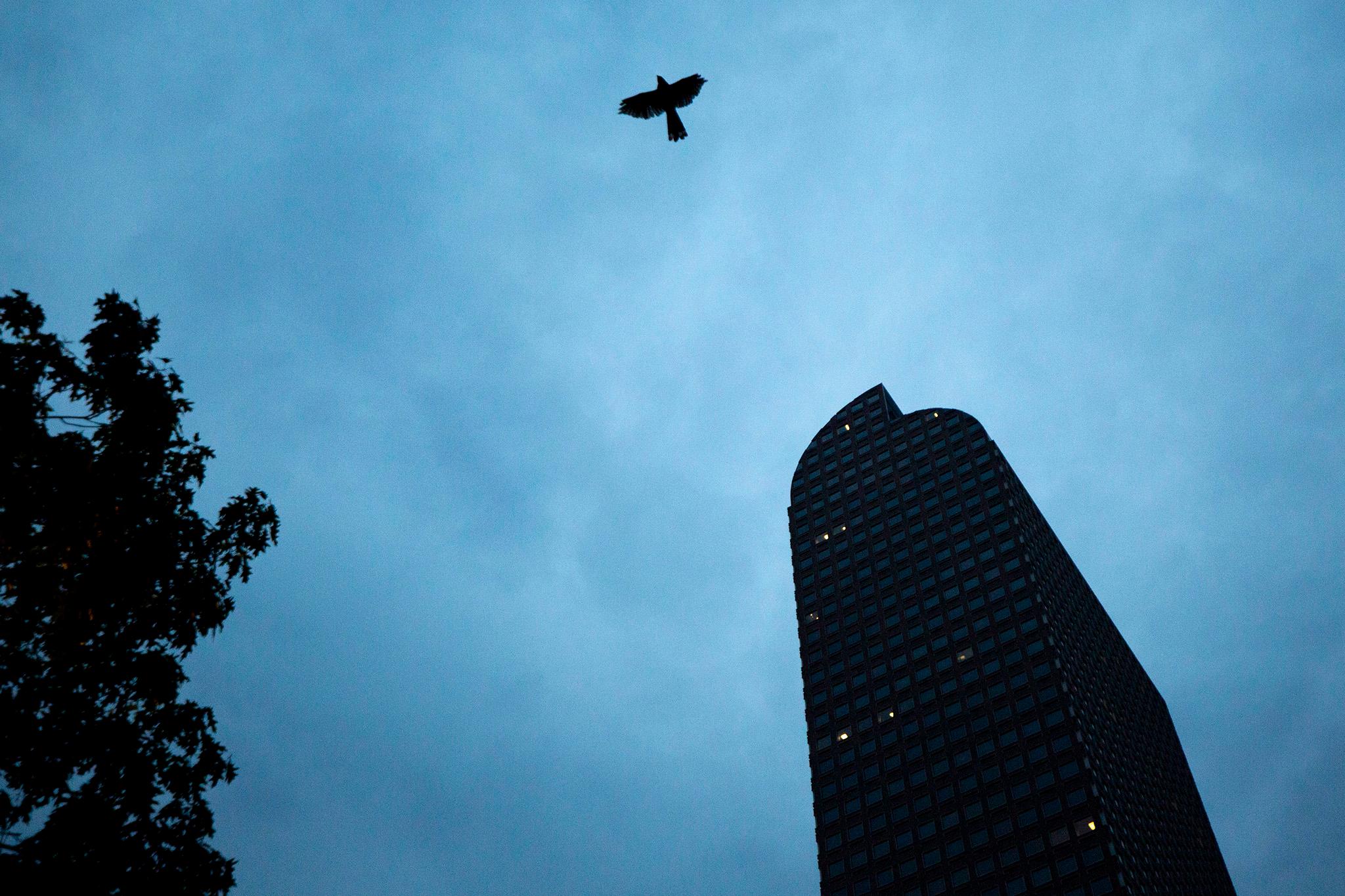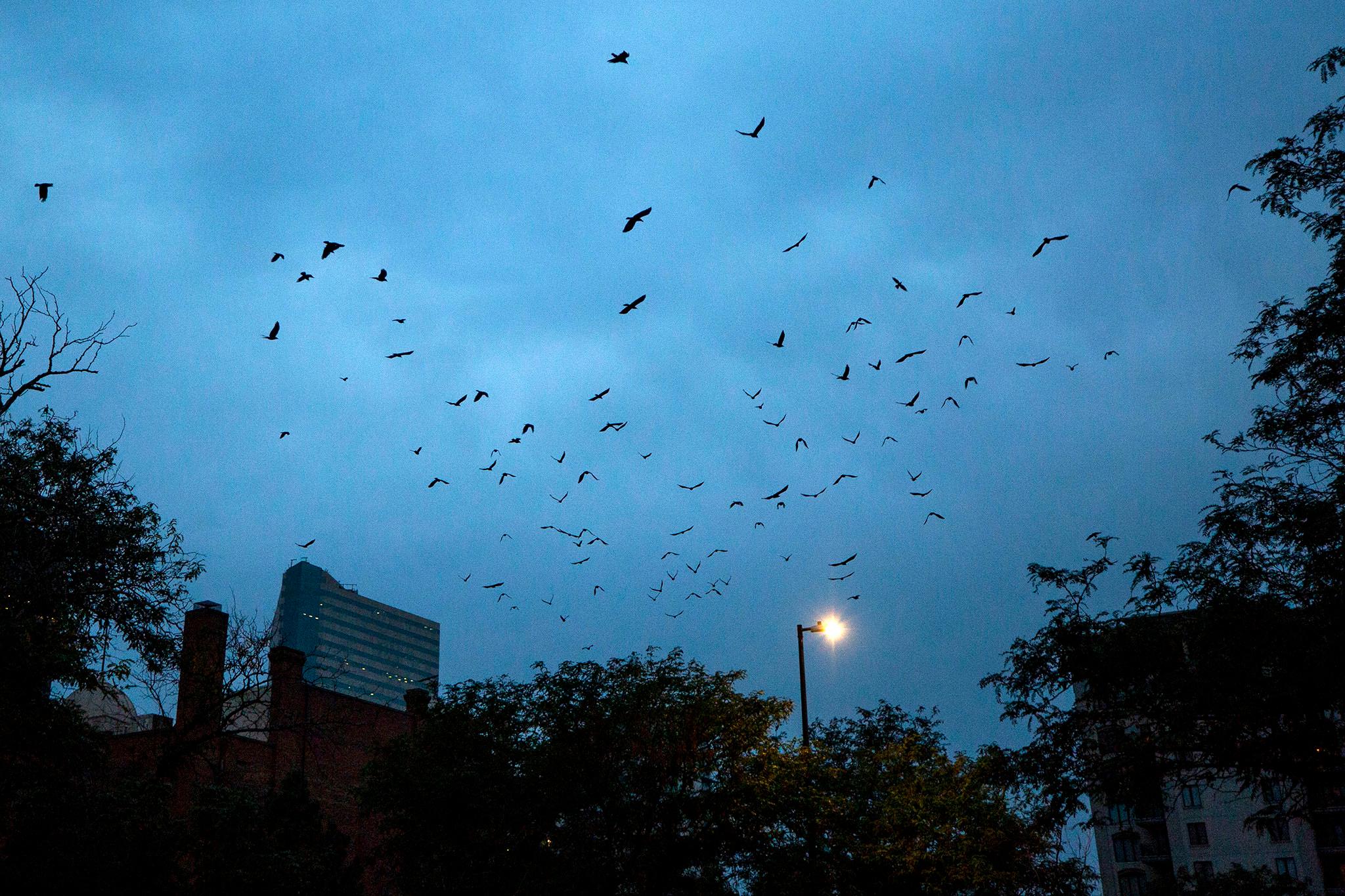They perch on tree branches in Park Hill, screaming at dog walkers. They lurk atop the high rises downtown, looking down solemnly at pedestrians like gargoyles.
Murders have invaded Denver. Murders of crows, that is.
Denverites (including yours truly) have noticed more of the ominous black birds cawing and carousing around the city, and some readers have asked, "What is up with the mega crow invasion?"

The black figures that hover and screech might make you feel like you're in an Alfred Hitchcock movie. But the crows mean no harm. They belong in Denver, are actually pretty sociable, and probably notice you, as well.
"I can say confidently that we do see an influx of crows every winter, if you compare that to summer or breeding season for crows," said Garth Spellman, an ornithologist with the Denver Museum of Nature and Science. "People don't always consider a large bird like a crow to necessarily be migratory, but they do undergo seasonal movements. The urban corridor along the Front Range is a really good wintering habitat for them. There's lots of roosting sites with tall trees and neighborhoods and humans are a particularly wasteful species, so there's lots of food for them."
Crows can and do breed in Colorado during the warmer months, but many mate in Canada, sometimes as far as northern Canada, or places with a higher elevation. Spellman said crow migration patterns are short-distanced, so the crows Denverites are noticing may stay in Colorado year round.
Crows are sociable animals, but during the breeding season, they form pairs and will find nesting sites to protect their young. Essentially, they isolate themselves.
So when the season is over, they're overly ready to return to their large communal roosts, much like extroverted humans.
"Crows are an extremely social species," Spellman said. "So they form these very large social groups, and you know a large group of crows is called a murder of crows, but these are just large social groups and they are communicating with one another. So, when you went outside and noticed the large group, their communications are probably saying, oh, a human just walked into our area. They're commenting on you too. The way you're observing them."

Not only are the crows watching you, they are remembering you as well, Spellman said. That's because crows are a part of the corvid family of birds, which includes ravens and magpies. According to an avian IQ scale, corvids rank among the highest in intelligence.
Spellman said in one study, different people put on the same mask and began to harass a set of crows. The crows fought back and after a while, they started to remember the mask. As time went on, regardless of who wore the mask, every time the crows saw it, they attacked.
The memory became a generational trait. Spellman said future generations of the crows also remembered the mask and continued to attack it.
"This suggests they're passing down cultural information: This human with this face is something you want to stay away from, harass and abuse to get out of your environment," Spellman said. "They pass down information in such a way that we would. Living in these social groups helps them."
The "invasion" of crows is almost over. Spellman said the breeding season starts around March, and the birds will slowly go back to their pairing nests. No more loud cawing or, as one reader said, "nasty messes" on the sidewalk.

But there is one more question: If crows are so smart and sociable, why do they have such a sinister reputation?
Spellman said we can thank Europeans and Edgar Allan Poe for that bias. It's also because crows are scavengers. Crows will eat from carcasses, "picking the flesh off of what's left behind," Spellman said, and since crows convene in large groups, 100 or so birds eating a rotted animal can make for a gruesome sight.
"They call it a murder [of crows] because they congregate at scenes that might be construed as being murders," Spellman said.
In Hinduism, crows are seen as messengers of both good and bad omens.
In some Indigenous mythologies, crows signify wisdom, are thought to be creators of the world and are considered to be "great company," Spellman added. But in other Indigenous myths, including Australian aboriginal mythology, crows are tricksters and mischievous.
Seems like crows are just the life of the party. Though they may be good company and sociable, Spellman doesn't suggest feeding them. Just be nice and they'll remember you fondly.
"So, when you come out of your apartment or house and you're nice to the crows, maybe they're saying 'That's a good human,'" Spellman said.












